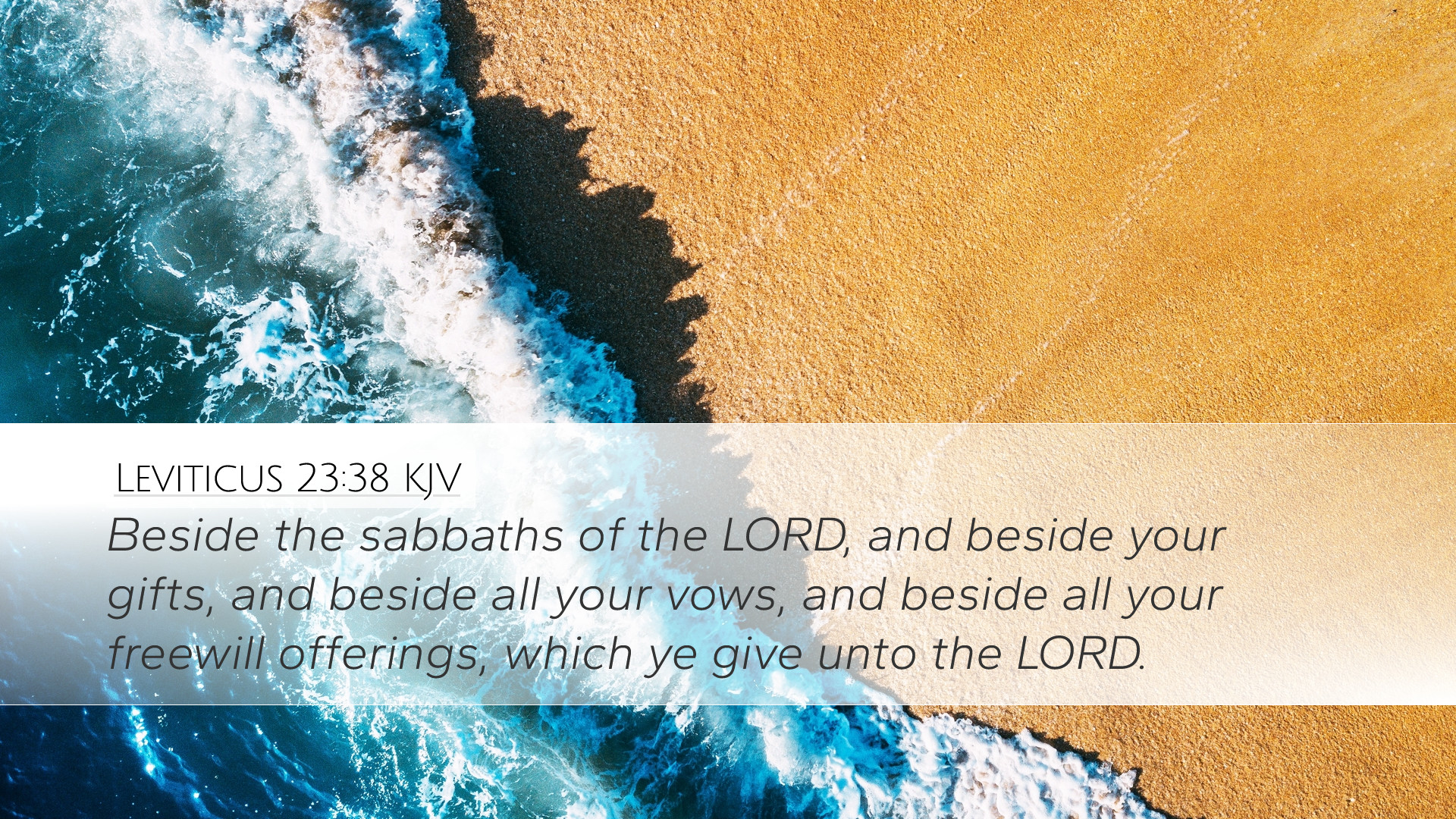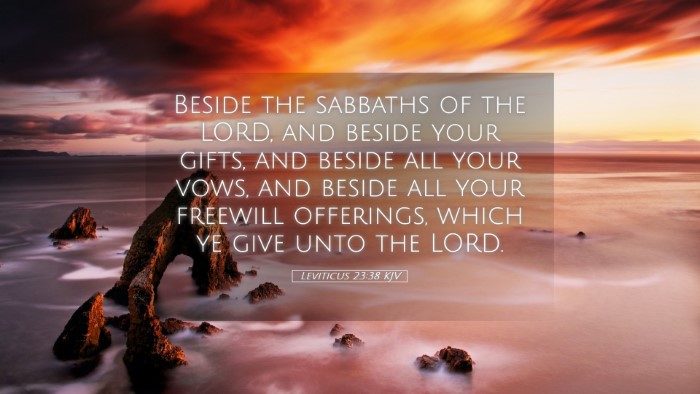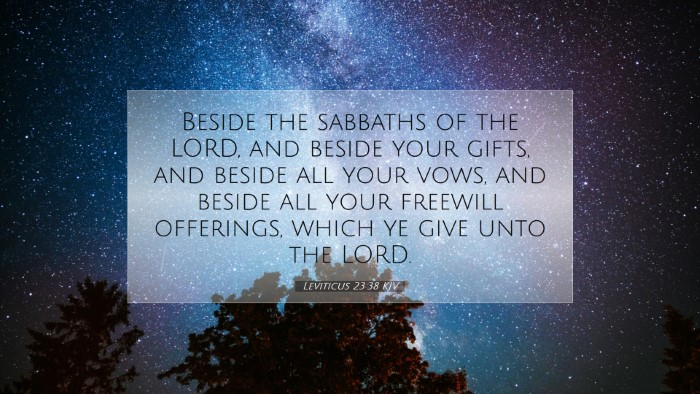Commentary on Leviticus 23:38
Leviticus 23:38 states: "Besides the sabbaths of the LORD, and beside your gifts, and beside all your vows, and beside all your freewill offerings, which ye give unto the LORD."
This verse is situated within the context of the detailed instructions regarding the feasts of the Lord, highlighting the significance of proper worship and the observance of sacred times.
Overview and Context
The book of Leviticus is primarily concerned with the holiness of the Israelites. It elaborates on the law given to them through Moses, emphasizing the importance of rituals, sacrifices, and observance of holy days. Chapter 23, in particular, outlines the appointed feasts that serve as times of joy and divine appointment, key events in the religious calendar that reinforce communal identity and relationship with God.
Insights from Public Domain Commentaries
Matthew Henry's Commentary
Matthew Henry emphasizes the importance of this verse in highlighting additional offerings required beyond the established observances. He explains that the phrase "besides your gifts" indicates that not only the formal feasts but also personal contributions and offerings should be made to the Lord. This highlights a dual aspect of worship: communal responsibility and personal devotion.
Henry also reflects on the idea that these offerings serve as reminders of the people's dependence on God and His provision. The verse encourages believers to recognize that worship extends beyond mere obligations and includes voluntary acts of kindness and gratitude towards God.
Albert Barnes' Notes on the Bible
Albert Barnes underscores the necessity of an additional layer of offerings which reflect the heart's dedication to God. He elucidates that the sabbaths and feasts act not just as ceremonial observances but as opportunities for personal engagement with God through sacrifices and freewill offerings.
Barnes also touches on the theological implications, asserting that such offerings symbolize Israel's covenantal relationship with God, serving both as an acknowledgment of His blessings and a means of fostering deeper commitment to Him. This affirms the doctrine that faith without works is dead, emphasizing that faith must be accompanied by active expressions of worship and gratitude.
Adam Clarke's Commentary
Adam Clarke elaborates on the multifaceted nature of offerings by indicating that they encompass diverse acts of worship that go beyond the designated festivals. He suggests that the inclusion of 'freewill offerings' denotes a sincere expression of personal love and devotion towards God, which is vital for true worship.
Clarke further affirms the importance of these acts as integral to the Israelites' identity and holiness. He notes that God desires a worshipful attitude rather than mere compliance with ritual, advocating for heartfelt participation in worship.
Theological Implications
Theologically, Leviticus 23:38 draws attention to several important themes:
- Covenantal Relationship: The emphasis on offerings reinforces the idea of a covenant that calls for reciprocal love and loyalty between God and His people.
- Personal Engagement: Each individual is encouraged to contribute willingly and joyfully, elevating the personal aspect of worship.
- Holistic Worship: Worship encompasses both prescribed observances and spontaneous acts of generosity towards God and community.
Practical Applications for Today
For pastors, theologians, and students of the Bible, the verse provides several practical applications:
- Encouragement to Engage: Leaders should encourage their congregations to engage in personal worship that extends beyond church services—promoting acts of kindness and service that reflect one's relationship with God.
- Holistic Ministry: Ministries should embrace a holistic approach by integrating prescribed practices with spontaneous acts of worship that resonate with the community's needs.
- Teaching on Generosity: The importance of freewill offerings can inspire teaching on generosity, emphasizing that giving reflects the heart of worship and community care.
Conclusion
Leviticus 23:38 encapsulates profound truths about worship, community, and personal devotion. By recognizing the importance of additional offerings, we are reminded of the depth and richness of our relationship with God. Such insights illuminate the path for contemporary believers, encouraging them to participate actively and authentically in their worship life.


